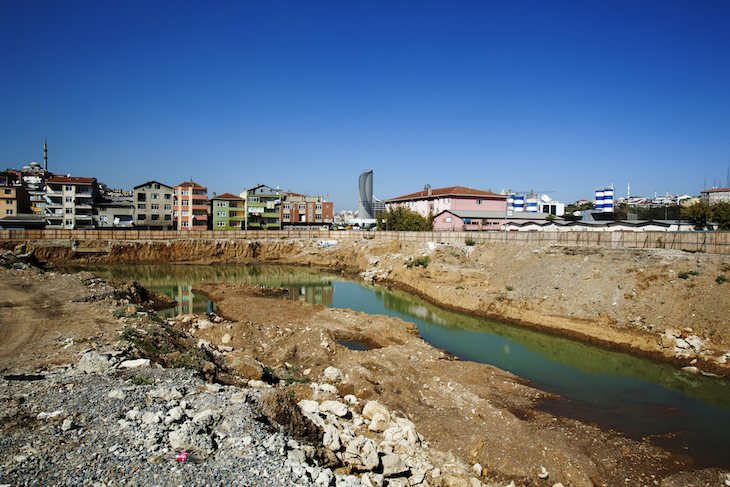Census is a curious, clever novel. It depicts a dystopia with a father and his Down’s syndrome son journeying from town A to town Z taking a census. The father, the narrator, knows he is dying. As a retired doctor he can interpret the fatal signs of his disease. His is a bizarre family; his wife, who has pre-deceased him, trained as a clown. Condemned to death and left with his disadvantaged son — ‘Our lives, my wife’s and mine, bent round him like a shield’ — he decides to register as a census-taker in an Orwell-ian state office. He asks questions of those interviewed, to which he sometimes but not always gets an answer
The novel becomes a parable, or rather a series of parables, complete with riddles. It explores the nature of the Down’s syndrome son and has its origins in the real-life relationship of Jesse Ball with his dead younger brother Abram, whose photographs appear at the end of the book. How does such a person survive? The answer is: some with difficulty, some with happiness. How do other people react to them? Again the answer is variable: some with love, some with fear and ridicule. ‘It is so easy for humans to be cruel, and they leap at it.’ Such is the lot of the Down’s syndrome person.
Ball’s style is spare and simple. It is literal and can be repetitive. He says his novels are purely repositories of thoughts. They are devoid of adjectives. Maybe the intention is to mimic a Down’s syndrome way of talking, direct and without device. Sometimes, though, the style becomes annoying. Yet the progress towards the narrator’s death in a ditch at Z is full of random but pertinent philosophising: ‘I was in a hurry. I was dying; is there any hurry greater than that?’
One of Ball’s influences is the Japanese avant-garde writer, Kobo Abe. Scenes encountered on the trip call to mind Edward Hopper’s gloomy suburban paintings. There are allusions to Yeats and Eliot and to the great Christian poet George Herbert. Census is a help to greater understanding and an act of piety. It is a humane, surreal novel that in terms of its own artform embraces, and empathises with, the predicaments of a Down’s syndrome child and his parents.
Got something to add? Join the discussion and comment below.
Get 10 issues for just $10
Subscribe to The Spectator Australia today for the next 10 magazine issues, plus full online access, for just $10.
You might disagree with half of it, but you’ll enjoy reading all of it. Try your first month for free, then just $2 a week for the remainder of your first year.














Comments
Don't miss out
Join the conversation with other Spectator Australia readers. Subscribe to leave a comment.
SUBSCRIBEAlready a subscriber? Log in